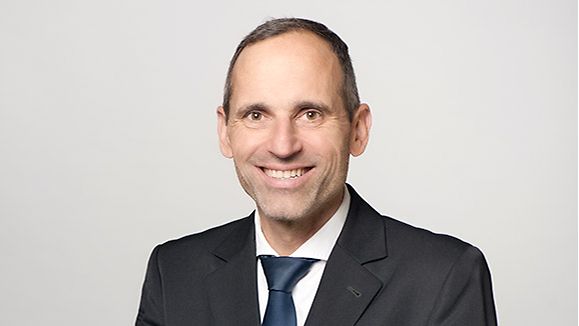Chemical Industry
Chemicals News | July 2024
Germany’s strong chemicals sector is implementing a number of new innovations in areas as diverse as battery recycling and chemical textile recovery as it moves increasingly towards a competitive circular economy market model.
Jul 24, 2024
- BASF and WHW Recycling collaborate to make battery cell production more sustainable
- BASF starts operations at prototype metal refinery for battery recycling in Schwarzheide
- Neste, Borealis and Covestro turn used tires into new car parts
- Re.solution wins Achema Start-up Award 2024
- Investment in Leuna Chemical Complex passes EUR 2 billion mark
- Sustainable kerosene from Leipzig
- Berlin cleantech company uses quantum chemistry to produce green methanol
BASF and WHW Recycling collaborate to make battery cell production more sustainable
Global chemicals giant BASG and Slovakian joint venture WHW Recycling have signed an agreement for the processing of cathode and anode waste that will make battery cell production in Europe more sustainable. Cathode and anode waste from battery cell production will be processed and separated into its constituent components from the end of the year at WHW Recycling’s two new separation plants in Baudenbach, Bavaria. BASF will thereafter refine the resulting impure cathode active material so that the resulting battery-grade minerals can be reused as raw materials for cathode active material production.
BASF starts operations at prototype metal refinery for battery recycling in Schwarzheide
German chemicals company BASF has successfully started operating its prototype metal refinery for battery recycling in Schwarzheide, Brandenburg. Valuable metals – including lithium, nickel, cobalt, manganese, and copper – will be recovered from end-of-life lithium-ion batteries and battery production scrap at the state-of-the-art battery recycling plant. The prototype metal refinery represents a milestone in the creation of Europe’s first co-located battery materials production and recycling center in Schwarzheide, complementing BASF’s existing cathode active materials plant and battery recycling plant for the production of black mass that is set to start operations later in the year. The German company is hopeful scaling up operations to establish a commercial-scale refinery within the coming years.
Neste, Borealis and Covestro turn used tires into new car parts
Neste, Borealis and Covestro have signed a project agreement to promote the recycling of used vehicle tires into high-quality plastics for automotive applications. The initiative, which will see used tires liquefied through chemical recycling before being processed into basic chemicals and high-purity polycarbonates for auto applications including headlights and radiator grilles, is a collaborative attempt at driving the circular economy in the plastics value chain and the auto industry. The first products from the agreement are already available, with the respective partners having already produced the first batch of their respective project contribution.
Re.solution wins Achema Start-up Award 2024
RWTH Aachen University spin-off Re.solution has won this year’s Achema Start-up Award with its chemical recycling technology for textiles containing polyester. According to the European Commission, one truckload of textiles ends up in landfill or the incinerator globally every second. The start-up’s proprietary process is renewable energy-based, thereby allowing the amount of chemicals and water used to recover chemicals to be significantly reduced in comparison to existing processes. According to Re.solution, the process is able to overcome textile-specific recycling challenges including the recycling of fiber blends and impurity removal in more economically competitive fashion than polyester’s conventional fossil route. The start-up is currently funded by the Federal Ministry for Economic Affairs and Climate Action and through the EXIST research transfer program.
Investment in Leuna Chemical Complex passes EUR 2 billion mark
The Leuna Chemical Complex in Saxony-Anhalt has reported current investment volume of more than EUR 2 billion, making one of the world-leading chemicals hub a stand-out in an otherwise subdued market. The Leuna Chemical Complex, which can look back on more than a century-long tradition of chemicals production, rightly enjoys a reputation as one of the world’s top addresses for modern chemicals production. Over 100 on-site companies produce 12 million metric tons of goods at the complex every year. A number of major infrastructure projects are currently being realized at the site, with site operator InfraLeuna itself investing around EUR 300 million in modernization measures. UPM Biochemical’s ground-breaking ceremony in 2020 marked a milestone in the transformation of the site away from oil and natural gas dependency to industrial biotechnology development. The company’s EUR 1.2 billion investment will see wood converted into ethylene glycol on a kiloton scale for the first time.
Sustainable kerosene from Leipzig
EDL Anlagenanbau is planning Germany’s first plant for the industrial production of synthetic kerosene. The Leipzig-based company will make use of its patented HyKero process for the production of synthetic aviation fuels (eSAFs). The “zero emissions” plant is expected to produce 50,000 tons of eSAFs annually, covering 50 percent of domestic demand until 2028 and gradually replacing fossil kerosene as part of efforts to “defossilize” the aviation sector.
Berlin cleantech company uses quantum chemistry to produce green methanol
Berlin-based cleantech C1 Green Chemicals has succeeded in producing green methanol in a fully autonomous and continuous methanol production run using quantum chemistry computational catalysis simulations a process that normally takes many years. Demand for green methanol is growing in response to the need to find alternative energy solutions that are sustainable and environmentally friendly. Demand is forecast to reach around 10 million tons by 2030. Current demand levels for green methanol are higher than legacy production processes allow, thereby creating demand for new processes that support environmentally friendly production along circular economy lines.
